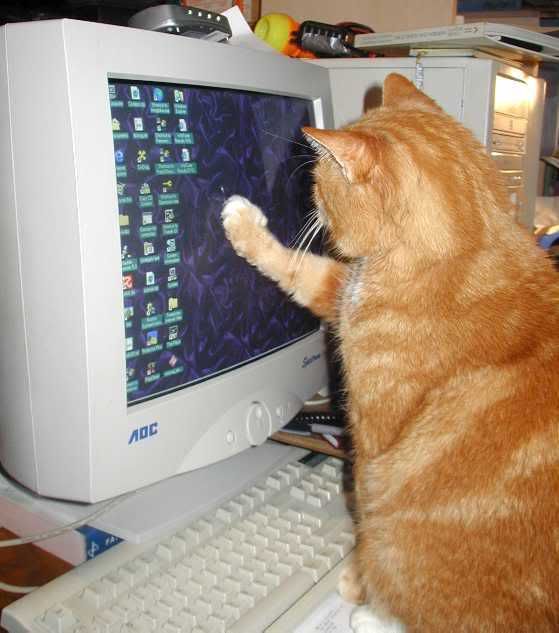|
|
Post by TheWallsScreamedPoetry on May 2, 2006 21:55:55 GMT
"When I was a kid I couldn’t even get a date let alone get laid. I was a virgin until I had a hit record. God bless ‘Light My Fire’. Jim Morrison 1970. When radio stations demanded a cut down version of ‘Light My Fire’ nobody thought it was possible to trim it down from 7 minutes to a more radio friendly 3 minutes. There were more radio friendly cuts on the debut album but it was a shortened ‘Light My Fire’ that propelled The Doors from obscurity into legend. Even now nigh on 40 years later the song is a treasured icon from the 60s. remembered here in the UK during the Doors dayys as a hit for Jose Feliciano...indeed when I first got into the band I thought they were covering Joses song....  Robby Krieger, who wrote the song in December 1965, was once asked about how he felt that Jim was often credited as the songs writer and replied he did not care as long as Jose Feliciano wasn't...... The song began its steady rise up the charts at the end of May 1967 breaking the 100 barrier in June and #1 by August. It was not a huge chart success as it only held that spot in ONE chart for 3 weeks and the other two US charts for only one week......worldwide it was not a chart success at all .....here in the UK it dissapeared without trace...... but the power of the song has transcended the generations and its as powerful today as it was in the US during the summer of 1967.. .....so lets pay tribute to the song that made The Doors legends......I will compile as much info here as I can find about the song and feel free to add any thoughts or opinions on what the song means to YOU as fans of The Doors...... ‘Light My Fire’.......Doors Icon? When the single ‘Light My Fire’ by The Doors first exploded onto the American airwaves in April 1967 no one could have foreseen the impact these four beach bums from LA’s Venice Beach would have on generations of rockers, punks, grunge artists, Goths, New Romantics and countless other wannabees and posers who take to the stage night after night all across the Globe. When the single ‘Light My Fire’ by The Doors first exploded onto the American airwaves in April 1967 no one could have foreseen the impact these four beach bums from LA’s Venice Beach would have on generations of rockers, punks, grunge artists, Goths, New Romantics and countless other wannabees and posers who take to the stage night after night all across the Globe.
Broadcaster and author Tom Ryan from Melville, New York puts the case for ‘Light My Fire’ and its affect on the emerging generations of teenagers who still embrace The Doors with a mixture of awe and trepidation three decades after the death of their lead singer Jim Morrison.
Light My Fire
The psychedelic phase of pop culture was
focusing on flowers, peace, love, and
brotherhood, but a backlash began to take place that focused on the darker aspects of the movement. On the East Coast, the Velvet Underground recorded noisy sound portraits with sparse, amateurish instrumentation that startled listeners with their imagery of drug addiction and lewd sex.
On the West Coast, the Doors focused their music and lyrics on an obsession with death and narcissistic nihilism. The Velvet Underground remained a cult band during its heyday and has since been considered one of the most influential bands of all time. The Doors reached a level of popularity that exposed them (literally, as in the performance and subsequent arrest of Jim Morrison in Miami, Florida) to a broader audience, making them controversial and provocative in their time, but today their influence is somewhat marginal.
The Doors came together when Jim Morrison shared some of his poetry with his friend Ray Manzarek, who was impressed enough to ask him to form a band. Although he had no writing experience, and, initially, no ambitions as a vocalist, Morrison began writing melodies for his poetry and rehearsed them with Manzarek on keyboards, John Densmore on drums, and two of Manzarek’s brothers on blues harp and guitar. After a while, Manzarek’s brothers decided to walk, thinking Morrison’s songs were a little too spaced-out for their taste, and guitarist Robby Krieger replaced them.
A short-term contract with Columbia records yielded nothing except a few demos, but the band was playing regularly around Los Angeles and acquired a substantial cult following, particularly among women who became entranced by Morrison’s shamanistic tendencies and “lizard king” image.
One night, Arthur Lee, the leader of L.A.’s seminal cult psychedelic group Love, saw the band perform at the Whiskey A-Go-Go and urged the president of his label, Elektra, to see them.
A contract with Elektra soon followed, and the Doors began work on their first album with producer Paul Rothchild.
Their eponymously titled debut album, The Doors, features an idiosyncratic mix of moody blues and sharp, edgy arrangements (the band lacked a bass player), paired with Morrison’s psychological bouillabaisse of wordplay.
The result is an emotionally complex and masterful study in self-obsession. Morrison’s tendency to write overtly portentous lyrics would, over the course of the band’s career, weigh down many of their later albums and render them as false or, even worse, silly.
Before this became a habit, however, the first album sounded fresh – and very different. What’s more, no other singer had previously personified his stage image as convincingly as Morrison.
Through his persona as a leather-clad demigod, the Doors became rock’s first postmodern stylists before the rock movement had even established itself.
“Light My Fire” was written by Robby Krieger, with a few lines added by Morrison (“No time to wallow in the mire…and our love became a funeral pyre” – pretty portentous, wouldn’t you say?).
At its original length of six-and-a-half minutes, the song has a meandering middle section of organ doodles that plods on endlessly and is mindless enough to turn your brain into goo.
Just as you become certain that your melting brain will not withstand the assault, the organ yields to an equally self-indulgent directionless guitar solo. Edited to two-and-a-half minutes for the single release, “Light My Fire” makes its point without causing your eyes to glaze over.
Morrison’s powerful voice sounds both hypnotic and dangerous.
One minute seducing the listener, the next terrorizing them, he plays the song for every drop of drama imaginable.
In 1967’s Summer of Love, “Light My Fire” became an engrossing anthem from the underworld and popularized a side of psychedelic culture that had heretofore gone unacknowledged.A look at the single that first alerted the world to The Door phenomena by Tom Ryan an author and broadcaster from his book ‘American Hit Radio’ Also check out "The time to hesitate is through” ‘Light My Fire’ @ TheFillmore East 68Doors Album Thread.Vote For The Doors LPLMF Poll!'Your Best Doors Moments - With Jim Morrison'Vote In Our Doors 40 Year Poll
|
|
|
|
Post by TheWallsScreamedPoetry on May 3, 2006 13:13:29 GMT
"It all started in 1967, when Buick proffered $75,000 to use "Light My Fire" to hawk its new hot little offering--the Opel. As the story goes--which everyone knows who's read my autobiography or seen Oliver Stone's movie--Ray, Robby and John (that's me) OK'd it, while Jim was out of town. He came back and went nuts. And it wasn't even his song (Robby primarily having penned "LMF")! In retrospect, his calling up Buick and saying that if they aired the ad, he'd smash an Opel on television with a sledgehammer was fantastic! I guess that's one of the reasons I miss the guy."
John Densmore Riders on the Storm
When Robbie Krieger joined the Doors in the fall of 1965, the band quickly fell into a steady rehearsal schedule, and both Jim and Ray became increasingly eager for the band to develop more original material. At a rehearsal in December 1965, Ray made it clear he felt all four of the band members should try their hands at songwriting with Jim adding that the lyrics should relate to the four elemants earth, air, fire and water..
Robby later explained...."So I went home and wrote ‘Light My Fire’ and 'Love Me Two Times'. These are the first two songs I ever wrote....took about an hour'.....
The basic melody, lyrics and chord progressions all came from Robbie, but the resulting hit is a perfect example of the Doors' group approach to crafting and arranging their material.
As the group first played the song, Ray was feeling it began too abruptly. Asking Robbie, Jim and John to take a break, he worked on an introduction.
As the other three went for a stroll on the beach Ray perfected the quasi-classical swirl of chords that would become the musical signature of the Doors.
John added to it further by using a modified Latin beat for the verses before breaking into a straight-ahead rock approach for the chorus and the solos. He also came up with a simple but distinctive piece of drumming genius..... the single snare drum crack that heralds Ray's intro.
Robby was short of a verse so Jim added the poetic darkness of 'wallow in the mire' matching it with 'funeral pyre' to complete Robbie's first effort.......Rothchild later mentioned to Morrison that was his least favourite part of the song unaware that it was the only section Jim had contributed to..... and there it was - the song which would catapult The Doors into Legend.
from Moonlight Drive: The Story Behind Every Doors Song by Chuck Crisafulli
RK: Yeah. And then, you know, when we realized we really didn't have enough songs at the time, Jim tried to get us to write some new songs too!
CS: Did higher powers go to work again?
RK: Yeah. And so, the first song I wrote was "Light My Fire".
CS: Still, no one really guessed how important in rock history that song would become and how that one song would literally change each of your lives forever!
RK: After we made that first album we knew we had this great album. The first single did nothing ... "Break On Through". It was on my mind, "Oh my God, here we made this great album and nobody was going to hear it!"
CS: And you guys thought your careers were over.
RK: And then they talked us into shortening "Light My Fire" to a 3-minute song and it would be a big hit on the AM radio, which you had to have in those days. But then, there was no such thing as a 6-minute pop song on radio.
CS: Yeah, in Los Angeles, 93 KHJ and the 'Real Don Steele' show started playing the 3-minute version of "Light My Fire" which became a HUGE hit on AM radio.
RK: So the songwriting gods smiled on our second single, because it would have been our last if "Light My Fire" was like ... "Break On Through" and did nothing Instead, "Light My Fire" went up like a rocket.
CS: Then, across America, the song became so popular that AM radio stations were deluged with listener requests for the album version. "Light My Fire" ... if I'm historically correct, was the very first 6-minute pop song put into heavy rotation on AM radio in America!!
RK: You know, if "Light My Fire" hadn't taken off, that would have been our last album.
CS: Instead, you broke ground and created a paradigm shift in rock n' roll music forever. The test of a great song is to do it with only one instrument and one voice. You could do that with "Light My Fire" and the song wouldn't lose the emotion behind it.
RK: I think that the test of a great song is that you could do it in many different arrangements and it would still hold up. "Light My Fire" for instance, was also the first #1 hit song for Jose Feliciano ... totally different.
CS: But still it's considered as another 'classic' version of the song. Absolutely. He did a fabulous job on that.
RK: Then after Jose Feliciano did it, everybody started doing it. Like your big band leaders, all those guys did it. It turned out that "Light My Fire" was by far our most covered song. Again, it's a kind of poetic-irony because if "Light My Fire" had failed to ignite on AM radio and stiffed like "Break on Through" ... The Doors would have vanished into oblivion.
CS: Instead, The Doors become one of the most influential rock groups in history. Doors tunes are really just standard pop tunes underneath. Very strong verse/chorus stuff. Each musician added a lot of their own musicality.
RK: Well, in 1967 I was being influenced by jazz guys like Miles Davis and Ornette Coleman, Back in 63' ... I'll tell you jazz music was a mystery to me, you know. Yeah, I liked jazz, but I never thought I would ever play jazz on electric guitar.
CS: So #1 you got very strong verse/chorus pop tune song structure ... and #2, so long as Ray's keybass loop and John's kick drum we're in the pocket then ...
RK: There's ... a great variety of musical styles, like Swamp Rock, Latin Blues, Psychedelic Jazz, Tribal Soul, Glam Pop and even German cabaret and traditional musical theater.
Robby Krieger talking to California Song 2004
|
|
|
|
Post by TheWallsScreamedPoetry on May 4, 2006 11:57:59 GMT
‘Light My Fire’.......Ray had the idea for the opening part which was a real hook. Jim helped me out with some of the lyrics and the beat was John's idea.'Robby Krieger 1972 "The way I knew that we had really broken through was ‘Light My Fire’ came out and three or four days later it was on the jukebox at Max's. That was all you heard. And the funny thing was I had come out of the john and I knew Jim was in there right before I was and there was some graffiti just saying....'Ray's cuter'....
I would say to the boys 'Oh the record jumped from this to this and it's got a bullet' and they would act kinda amused. And they gave this facade, or at least Jim did,of 'I don't care...here you go again Steve telling us all these things about how great we are and we really don't care'......And so with tongue in cheek I would go a couple of days without mentioning how the record was doing.....and Jim cornered me...'well where did the record go how much is it selling'...."Steve Harris Elektra Exec. 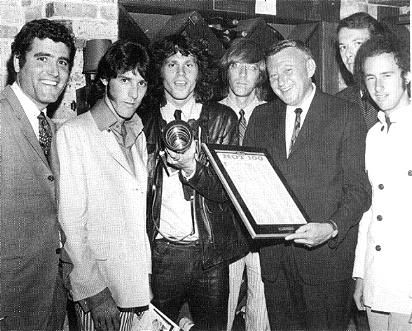 Steve Harris (on left) with The Doors & Jac Hozman (behind Robby) as the band receive the plaque certifying the ‘Light My Fire’ acheivement as #1 single on Billboard.... probably in August of 1967."Elektra's first...my first...#1 single. We celebrated with gifts to the boys. Ray and Robby got the very first Sony black & white reel to reel video tape recorders with a clock for off-air recording. John was into equines so he received a horse. I gave Jim a gag 'Get Out Of Jail free' card. I also ordered a gold record to be mounted on a plaque and sent to Paul's parole officer" Steve Harris (on left) with The Doors & Jac Hozman (behind Robby) as the band receive the plaque certifying the ‘Light My Fire’ acheivement as #1 single on Billboard.... probably in August of 1967."Elektra's first...my first...#1 single. We celebrated with gifts to the boys. Ray and Robby got the very first Sony black & white reel to reel video tape recorders with a clock for off-air recording. John was into equines so he received a horse. I gave Jim a gag 'Get Out Of Jail free' card. I also ordered a gold record to be mounted on a plaque and sent to Paul's parole officer"Jac Holzman "I set up a Gold Record Party at Delmonico's wine cellar. A wonderful place. The usual suspects were there...the Warhol crowd, DJs, press people some people who owned record stores."Steve Harris Elektra Exec. "Jac really outdid himself. Here's the #1 in the nation, probably Elektra's first #1. We are all pleased as punch with each other, feeling awfully smug and great.
We're in the wine cellar. Mistake! Morrison proceeds to get rip roaring drunk. He's reaching behind and pulling bottles out of the wine rack...calling the waiter over to open them...'don't like this...forget it'. He was like blind tasting, alternating between pulling out $20 bottles and $50, $75 and $100 bottles"Ray Manzarek "He just banged them open and drank them right out of the bottle"Steve Harris
"People are toking and the smell of marijuana is in the air. People are just laughing joking screaming...crawling over the tables"Ray Manzarek "I contemplated the scene in its entirety and decided it wasa good place to be absent from"Jac Holzman 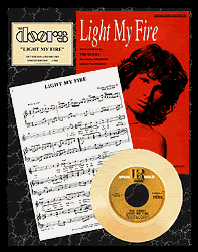
"Jac was gone, the rest of Elektra was gone, the photographers had dissapeared, the people from Billboard had dissapeared. I looked around and thought....'this is like 75/100 hippie animals and there's not an adult in the whole damn place. This is absolutely insane. The manager of the bar walks in, the cops walk in. That's it. The party is over. Everyone out. So we stumbled and bumbled out of the place."Ray Manzarek "We headed for Jac's. Andy warhol had given Jim a present. A sort of Louis XIV gold phone in a box. The car stopped at a light and there was a bum on the sidewalk. Jim rolled down the window and handed him the box. As the light changed and the car rolled away into the night we saw the bum standing there opening the box"Steve Harris "This is the famous night when Jim allegedly came hammering on my door and when we would not open it peed in an empty wine bottle and left it. Or peed on the wall and the fabric peeled off or peed in the corridor. The sensitive artist and insensitive record company President. Creative rage delivering righteous judgement on the crassness of commerce. The stuff of rock legend. Leaving aside the fact Jim would not have gotten passed the doorman at that time of night and in his condition. We would not have been there to come out as we wnet to check out an act at a downtown club. Also there was no bottle of pee nor carpet stain outside the door.
A year later I returned to Delmonico's. The racks were happily full of bottles intact and properly displayed. But no wine......they were just for show. One Morrison wine fest was enough!"Jac Holzman
|
|
|
|
Post by TheWallsScreamedPoetry on May 5, 2006 23:27:15 GMT
Whilst Jim was in London after The Doors European Tour of 1968 another incident had occurred which served to damage relations with Jim and the rest of the band. An advertising agency had offered The Doors $100,000 for permission to use ‘Light My Fire’ for a Buick commercial. The agency were on a tight schedule and needed a quick answer. Since Jim couldn't be contacted in London Bill had to discuss the matter with the other three members. The song had been written by Robby and although there was usually a group decision on these matters on this occasion Bill thought it prudent to let Robby decide and they voted to give Buick the go ahead.
When Jim arrived back a few days later and heard about 'Come On Buick Light My Fire' he went totally beserk finally contacting jac Holzman who still controlled the publishing to try and block the deal. The song was never sold but Jim felt betrayed that the others would consider making such a decision without him and the rift that had already begun to divide them grew bigger.
Cheri Siddons (wife of Bill) remembered how angry Jim got.
'He was an artist and I think the angriest I ever saw him was when The Doors decided to let Buick use ‘Light My Fire’. I just remember this real unhappiness. I think if he was ever going to yell he would have yelled that day. He did not yell but it was as if a light switched off. That was the last straw somehow. I'm not sure if he really liked Robby, John & Ray after that. I think he could sense they had different purposes. They were more into the money and the business and would sacrifice some of the 'art' for that.
Jim was not willing to sacrifice the art for anything"
From The Doors Dance On Fire. (p125)
Some powerful stuff there....Cheri's account differs from Ray's more melodramatic account but I would say she was a much more reliable witness to the events. Even if she was not there in person (which she may well have been) her second hand account would have come from hubby Bill who was there as Doors manager. By contrast Ray's account on p305-307 of his book seems like part of the script for Stone's movie and is probably just one of the usual Manzarek fantasies.
Both Cheri and Kathy Lisciandro (who was also probably present in the Doors office when these events occurred as she was Doors secretary) give a taste of the way Jim interacted with his bandmates in Frank Lisciandros book 'Feast Of Friends' and Kathy states that Jim was never rude or yelled at his fellow Doors in the times she was there. Manzarek has Jim screaming and shouting in reaction to the Buick fiasco whilst the other account is a more composed response.
Lisciandros books certainly give us a far better insight from his friends into the character of Jim Morrison than those given by those who regard him as a meal ticket.
Many argue that the band and adverts would be a good thing and that Jim would in 2006 be agreeable to The Doors selling their collective souls to some car firm or to advertise toilet role.....Jim is dead so we can put any words we like into his mouth but his actions show how disreputable the arguments of the more commercially minded among The Doors world are......he stood up for a song he had little to do with...that's how much the art meant to that bloke....he would have defended it with his last breath....a lesson Ray with his New Age Of Aquarius forgot a long time ago.....
|
|
|
|
Post by TheWallsScreamedPoetry on May 6, 2006 9:44:57 GMT
"The General Motors TV commercial may have been the flashpoint for some of Jim's antics. GM asked to use ‘Light My Fire’ as the theme for a new model car. They were offering good money $80,000 in 1969 dollars which would be split Doors $60,000/Elektra $20,000. During the negotiations Jim was off and nowhere to be found but the remaining Doors OK'd it and so did Max Fink who was Jim's lawyer. Personally I didn't care one way or the other.
When Jim rematerialized...he freaked. He was sure we had all taken advantage of his absence. The other Doors supposedly laid it on my doorstep. Jim phoned me in New York. I set out the sequence of events in typical Jaconian detail and he seemed mollified....or at least no longer blaming me! I said 'Jim, as far as Elektra is concerned its not a matter of money. Elektra will contribute its full share to a film scholarship fund at UCLA......an interest of his and Ray's....if The Doors will match it. That still leaves $40,000....$10,000 each for the Doors. I was urging him to take the money and then turn around and do some real good with it. Jim thought it was a notion to consider but after that conversation the subject never again came up.
A commercial was shot and aired but very sparesly. Jim may have hoped to create such a furore that GM would be reluctant to use the tune. He once threatened to take his quarter share, buy a bunch of Buicks and smash them up on Santa Monica Boulevard"Jac Holzman Follow The Music (p283) One of the most amazing things about the Light My Fire/Buick affair is how deeply grained the Myth is in Doors History. We will never really know what actually happened as what various people like to think happened has taken over completely. Oliver Stone was criticised for alluding to the fact that a TV ad was aired in his film....yet here we have the President of Elektra actually confirming that an advert was made and indeed shown on TV. Many sources say the deal was quietly forgotten about by Buick. The Light My Fire/Buick fiasco a perfect example at the level some players in the story will go to to promote an agenda. Was 'Light My Fire' bought by Buick? Did Buick use 'Light My Fire' to sell a car? Will we ever know the real truth about that incident? Like much in The Doors world its a matter of perspective and depends on whether the History of The Doors is more important than the selling of The Myth of The Doors. This is one that will run and run I am sure! 
|
|
|
|
Post by jym on May 6, 2006 13:03:12 GMT
I could almost swear I remember a LMF car ad, but it could be convenient memory or something, that it predates Oliver Stone's movie.
|
|
|
|
Post by TheWallsScreamedPoetry on May 6, 2006 13:11:07 GMT
The 'Pirelli?' advert for tyres featuring ROTS was definitely made as I saw it on Brit TV in the 70s ....this was just a Euro deal but all the info we have had on ‘Light My Fire’ and Buick has pointed to them pulling out of the deal before an actual ad campaign was made. This Jac comment from Follow The Music in 2000 was the first refderence I remember to an advert actually appearing. Stone was attacked for showing an ad in his film but as you say....maybe it was shown and then Jim sorta put them off by threatening to smash up a Buick?  |
|
|
|
Post by TheWallsScreamedPoetry on May 6, 2006 13:21:53 GMT
[glow=red,2,300]The Genesis of Light My Fire[/glow]
RK: After we made that first album we knew we had this great album. The first single did nothing ... "Break On Through". It was on my mind, "Oh my God, here we made this great album and nobody was going to hear it!"
CS: And you guys thought your careers were over.
RK: And then they talked us into shortening "Light My Fire" to a 3-minute song and it would be a big hit on the AM radio, which you had to have in those days. But then, there was no such thing as a 6-minute pop song on radio.
CS: Yeah, in Los Angeles, 93 KHJ and the 'Real Don Steele' show started playing the 3-minute version of "Light My Fire" which became a HUGE hit on AM radio.
RK: So the songwriting gods smiled on our second single, because it would have been our last if "Light My Fire" was like ... "Break On Through" and did nothing Instead, "Light My Fire" went up like a rocket.
CS: Then, across America, the song became so popular that AM radio stations were deluged with listener requests for the album version. "Light My Fire" ... if I'm historically correct, was the very first 6-minute pop song put into heavy rotation on AM radio in America!!
RK: You know, if "Light My Fire" hadn't taken off, that would have been our last album.
Robby talking to California Song Magazine 2004
RM: You just set up and write "Light My Fire" ... No! Never believe anything you see in the movies. Wrong. All wrong. Movies condense life into an hour-and-a-half. We did although set up and the first song we played was "Moonlight Drive."
CS: Then "Light My Fire" was the very first song The Doors wrote as a group?
RM: The very first one - the song is basically Robby's song. Robby wrote the first verse and chorus lyrics with chord changes 'A minor' to 'F# minor'. John dropped in the Latin rhythms and drum beats. My contribution was the organ 'intro' and the 'solo' sections and Jim wrote the lyrics for the second verse.
CS: The Doors first (#1) hit record "Light My Fire" ... all from Robby Krieger?
RM: Yes, those are his chords ... but all four musicians worked on it with the one communal mind that was The Doors. That's how it would go most of the time.
CS: One band capable of cultivating from those four fertile imaginations?
RM: Yes, Robby would . man, he was just loaded with ideas and then we would expand those ideas and create a song out of it. Jim would have finished lyrics and the melody, but no bridge ... so we would pluck the bridge from some other half finished songs floating around or we would create a bridge from any new songwriting ideas we might have had yet to actually try composing. Then if any of those ideas turned out to be good ideas ... we'd adapt that to any current songs that were not quite complete.
Ray talking to California Song Magazine 2004
The chord progression in ‘Light My Fire’ was inspired by John Coltrane's "My Favourite Things," a version of which Julie Andrews sang in The Sound of Music.
The song was expanded during the days of The London Fog when due to the lack of material for the number of sets they had to complete The Doors would drift off on various jazz based excursions. Later in concert Robby would incorporate Eleanor Rigby and My Favourite Things into his guitar solo whilst Jim would sometimes include poetry such as 'Graveyard Poem' and also if the audience was in luck some of his own favourites such as 'Summertime' from Porgy & Bess and the bluesy 'Fever' and 'St James Infirmary'.
“The chords in ‘Light My Fire’ are based on John Coltrane’s version of My Favorite Things. He just solos over A minor and B minor, which is exactly what we did. Coltrane had played with Miles on Kind of Blue and took the idea of modal soloing over one or two chords farther out than anybody. He was a real pioneer - he just kept evolving, going where no one had ever gone. He could always attain this state of ecstasy when he played. Live, there was so much energy, you couldn’t believe it. He would play for hours. It was indescribable.”
Robbie Kreiger
It was the first song Krieger ever wrote -- with additional lyrics from Morrison and arrangement ideas from the rest of the band. "It's like I'd saved up all the things in my mind until that time and had the chance to get it out all at once," Krieger told ROLLING STONE. The song catapulted the Doors to overnight fame, which Krieger says was part of Morrison's plan: "Jim had this idea of the band being like a shooting star, going up real fast and becoming a huge success." "Fire" ran for seven minutes on the LP and was cut down to three, with Krieger's and keyboardist Manzarek's solos excised, on the single.
Rolling Stone
Q - One hundred years from now, people will still be playing and listening to "Light My Fire". It's a rock classic. As the writer of that song, how doe*s that make you feel?
A - It's really a great feeling to have written a classic. I think I owe a big debt to Jose Feliciano because he is actually the one, when he did it, everybody started doing it. He did a whole different arrangement on it. It was a much more accessible arrangement as far as different types of musicians doing it. Nobody had covered it up until that time. Once he did it, everybody started doing it. Even though I really didn't like his version at first, like I say it was a lot more accessible. The very fact that that song was the key element in the career of both The Doors and Jose Feliciano, in two total different arrangements of the song shows how strong that song is.Robby talking to Gary James @ Classicbands.com
“The Doors original success was predicated on ONE thing: Light My Fire. That was Jim Morrison's great humiliation. It's one of the reasons he lost his enthusiasm. He'd go out on the road and ALL he'd hear was people yelling for Light My Fire. As a songwriter, he had a particular reason to hate it: he didn't write it! Robbie wrote it. In fact, the one part he DID write is my least favorite line: "No time to wallow in the mire." During his life I didn't know he wrote that, though. I remember one day while we were making the first album, Jim and I were driving down Sunset Blvd. and he asked me what I thought about the lyrics to Light My Fire. At that point, I didn't know who wrote it. I assumed HE had written it. So I said "Gee, I think it's great except for the muck and mire line." It was only recently that Robbie and Ray told me that was the one line Jim had written. He never let on to me for a second, though. I think that's tremendous.”
Paul Rothchild talking to BAM Magazine
"Light My Fire"
It might be the most PLAYED Doors track, but it's not the best.
It's the pop SINGLE!
Actually, it worked AGAINST the band.
Believe me, we were hip by this point. A Los Angeles band called THE DOORS? Like in THE DOORS OF PERCEPTION??? HOW FUCKING LAME! With a HIT SINGLE TO BOOT!
Our favorite acts didn't have hit singles. You didn't hear "Purple Haze" on AM radio. And it wasn't until EONS after "Disraeli Gears" was in the marketplace that "Sunshine Of Your Love" crossed over.
This was the main reason I didn't buy the album. I expected more LIGHT MY FIRE!
And that's not what the rest of the album was.
But I had to wait for that afternoon in Sally's vacation house to find out.
Still, "Light My Fire" WAS famous for having two versions. Yes, you had to tune in to FM to hear the seven minute take. We felt SPECIAL! For the average joe, the one LISTENING to AM, DIDN'T listen to FM, and had no idea this version existed. It was just for us.
And it's this lengthy instrumental break, excised from the AM version, that makes the track.
Bob Lefsetz, Santa Monica-based industry legend, and the author of the e-mail newsletter, "The Lefsetz Letter".
|
|
|
|
Post by TheWallsScreamedPoetry on May 18, 2006 10:40:06 GMT
The Doors Sheet Music for "Light My Fire" by The Doors from 1970 Published by the Doors Music Company. 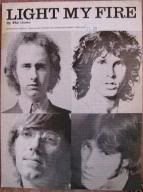 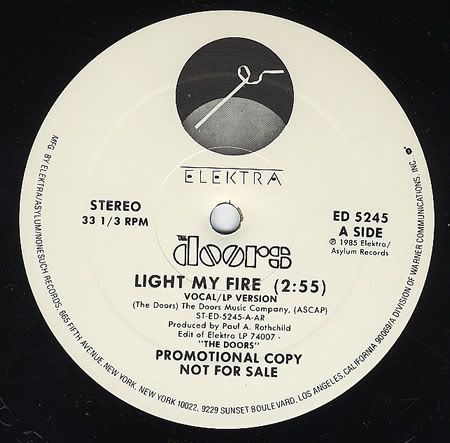 Rare Light My Fire US 2-track promotional vinyl 12" single from 1985 featuring the LP Version and Live Editited Version. |
|
|
|
Post by TheWallsScreamedPoetry on May 19, 2006 12:01:16 GMT
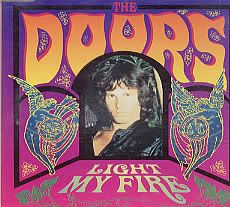 THE DOORS Light My Fire Deleted 1991 UK/German 4-track CD, includes Edit and 7:06 version, People Are Strange and Soul Kitchen picture sleeve EKR125CD 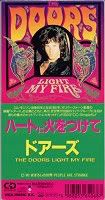 THE DOORS Light My Fire Scarce 1988 Japanese 2-track 3" CD including People Are Strange, nice snap-pack picture sleeve WMD5-4068 |
|
|
|
Post by TheWallsScreamedPoetry on May 22, 2006 15:18:30 GMT
Here is an interesting look at LMF from the point of view from 1968 of the guy who made it a hit here in Europe when The Doors couldn't......Jose Feliciano  Jose Feliciano: Jose Makes Old Very Avantgarde IF, AS THE cynics say, there is nothing new in the world, then the mark of the truly creative performer is one who can make the old seem new. Jose Feliciano, the 22-year-old singer-guitarist currently storming both singles and album charts, has become an overnight sensation by making the old seem avant-garde and ultra hip. Jose Feliciano: Jose Makes Old Very Avantgarde IF, AS THE cynics say, there is nothing new in the world, then the mark of the truly creative performer is one who can make the old seem new. Jose Feliciano, the 22-year-old singer-guitarist currently storming both singles and album charts, has become an overnight sensation by making the old seem avant-garde and ultra hip.
His sensuous yet subtle reworking of the Doors' hit, 'Light My Fire', has swept to the top of the US charts with the force of a Florida hurricane, and the album, Feliciano, is still rising. Both have earned a Gold Disc in a matter of weeks.
The ex-Puerto Rican artist, who has been blind since birth, waited 5 1/2 years for his time to come.
"Being born blind is not so bad," he told NME at his Newport Beach home in California recently. "But it must be terrible to become blind after being able to see for 15 or 20 years. I can't deny it was a battle.
"When I was young and first came to the States (in 1950) I used to wonder what would become of me. I didn't want to make chairs and mops and brooms.
"That's fine for some blind people, and I would be the last one to knock it. But I wanted something else, so I applied myself to music.
"I used to play piano accordion. It was great physical exercise, all that squeezing and pumping. But I gave it up four years ago, and took up the guitar. I'm glad I did, too," he added, with a laugh.
RCA Victor signed Feliciano by chance rather than design. An executive had been sent to Greenwich Village (Jose lived in New York for several years before moving to California in 1966) to look at another act, but he was so impressed by Feliciano that he forgot about the other artist.
Disappointed
Jose cut two albums for Victor prior to the current LP. "I was tremendously disappointed that they did nothing," Jose said.
But what led an artist of Feliciano's classy calibre to pick on, of all things, a Doors' disc? "When I first heard 'Light My Fire'," he recalls, "it sounded just like any other rock 'n' roll song. Nothing special about it.
"But after discussing it with my A & R man, Rick Jarrard, we thought why not slow it down, and do it with soul? Why not? We had nothing at all to lose.
"So we put down one track with my vocal and guitar (Jose always records guitar and voice together, to emulate the live performance feeling) plus bass and conga drums. Then they added some special string arrangements and a jazz flautist improvising.
Kill all others
"I remember thinking at the time, I want to kill all the other versions of the song that are available. We wanted to do 'Light My Fire', and all the other songs on the album, so well that dee-jays would forget the other versions.
"If we succeeded it's because a lot of people put their hearts into it. Session men, for example, get paid to play, but you can't pay a man to put his soul into something. He does so because he feels it.
"It would be presumptuous of me to say I thought it would be a hit. We liked what we heard in the studio, but we didn't really expect what happened. I refused to get carried away by it all. It's so easy to let a little bubble of enthusiasm and hope become a raging torrent which engulfs you.
"When West Coast middle-road stations played it, I waited. When pop stations here played it, I still waited. When pop stations elsewhere played it, I waited.
"I thought it would all stop after a week. I figured they were just playing it for a change of pace. But when it reached No. 1 in California, I knew we'd done it.
"You know, we had a letter from the publisher of 'Light My Fire'. He said 'thanks for making the song a standard.' That made me feel wonderful.
"But even now with a No. 1 record, I have to work just as hard, have to keep learning. I'll always be a student of music. When I stop learning I'll be dead."
The other side of 'Light My Fire' is Feliciano's equally strident and outstanding version of the Mamas and Papas' 'California Dreamin''. Both are tracks from the current album.
"My own favourite in the album is 'And I Love Her'," said Jose. "We did it with a special thought in mind. Since I don't know the Beatles personally, I wanted to make my own musical tribute to them and their great talent."
Jose visited Britain two years ago, but there seems little chance of his returning. "England is a great country, but it has foolish quarantine laws.
"They wouldn't let my seeing-eye dog in with me. Yet they let in show dogs every day. I can't understand it. Maybe I can help to get the law changed, not only for me but for all blind people who want to visit England."
Jose is now cutting sides for his next album. One of the tracks, and a likely single, is his interpretation of Cream's 'Sunshine Of Your Love'. Another is John Sebastian's 'Younger Generation'. "Our follow-up to 'Light My Fire' is very likely to be another familiar and recent hit song."
"Later in the year, I'm doing a TV special in Mexico City for a U.S. network with Bob Hope, Bing Crosby and the Supremes. I also have concerts in Boston, New York and San Francisco.
"Around Christmas, I hope to play at some prisons and hospitals. A lot of artists are too busy to entertain people in jail. And they forget that prisoners are human beings. A lot of people helped me when I needed it, they encouraged me. I'd like to do something to help other people."
Enter the wife
Just then, Jose's wife, Hilda, raced past. Jose asked me if I'd like to speak to her. "Hi," she panted, "I'm a little tired out. I act as chauffer, wife, and help the accountant.
"I want to make sure Jose doesn't wind up with nothing. I want to make sure that money gets invested for the future."
"But I guess if I run around enough, everything will start to run itself soon. I'm so pleased it's turned out this way. I'm biased, but I feel his success is richly deserved. People have finally gotten to recognise his talent."
"We've been married over five years," Jose continued. "Got married young, but I'd do it over again. I'm lucky really. Hilda is a smart businesswoman, and that's what every musician needs."
And as to his singing style, Jose doesn't think it has any label. "I dig soul singing. I guess I'm in the soul bag. I like putting meat...feeling...myself into song. I guess I'm an actor's singer. I like to feel a personal involvement in the lyrics.
"But I still have a long way to go," he said.Ritchie Yorke, NME, 12 October 1968
|
|
|
|
Post by jym on May 22, 2006 15:29:37 GMT
Jose's version was sensuous? I remember it as being a very rushed 2:12 version of it. If as Grace Slick said LMF was an orgasm on a record (a paraphrase, I know) then surely Jose's version is a premature ejaculation?  It said the record company guy, when he discovered Jose was on his way to see another singer, I wonder if that guy ever wondered what happened to his deal?  |
|
|
|
Post by TheWallsScreamedPoetry on May 25, 2006 23:56:32 GMT
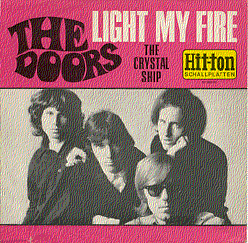 Rare German single w/picture sleeve (1967) 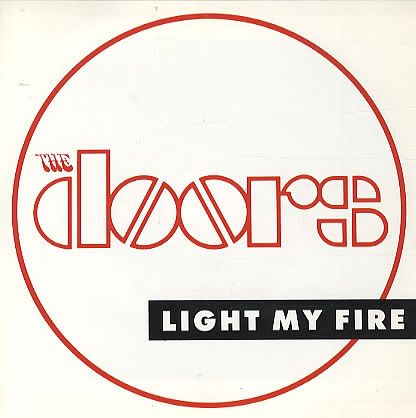 1991 Spanish Promo Copy! |
|
|
|
Post by TheWallsScreamedPoetry on May 27, 2006 9:10:44 GMT
THE DOORS Light My Fire Original Japanese blue and silver Elektra label 2-track 7" vinyl single, also featuring The Crystal Ship, housed in a die-cut Victor Group company sleeve including colour picture insert with Japanese text biography and English lyrics printed on the reverse. 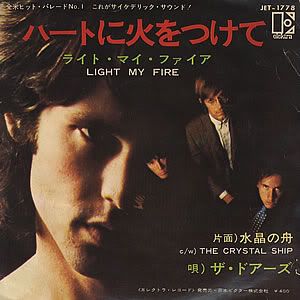 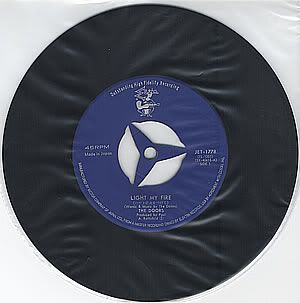 THE DOORS Enciende Mi Fuego EP - Light My Fire 1968 Mexican 4-track 7" EP, includes El Barco De Cristal - The Crystal Ship, La Gente Es Rara - People Are Strange and Paseo A La Luz De La Luna - Moonlight Drive, with full titles in Spanish, in unique wraparound picture sleeve! EPE-1486. 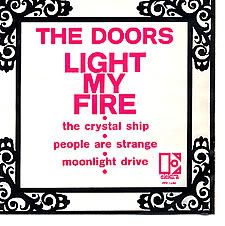 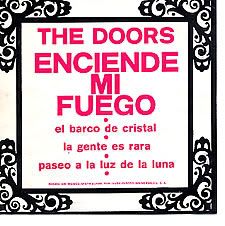 |
|
|
|
Post by TheWallsScreamedPoetry on May 28, 2006 12:30:13 GMT
The Sexual Pyrotechnix of THE DOORS Light My Fire
INTRO & DEDICATION:
The following is my entry for the "Dinosaur Rock-Off;" a tribute not only to the memory of rock legend, John Entwistle (The Who's recently departed co-founder/bass player,) but to rock and roll's pioneering forefathers, generally.
I'd also like to note that the guy who inspired me to host this W-O is none other than Ciao's own "Paiceyjohn." Besides being one of my favourite Ciao writers and the only member (so far) willing to risk his upstanding reputation and good name by coming to the colonies and meeting me in person, John (wisely noting I had no real choice in the matter) bravely pretended to make a public spectacle of himself, just to honor me and provide good fellowship. I have no doubt Paiceyjohn would receive far more reads if more Ciao members knew of his existence, his writing talent, his world-travel-honed wit and wisdom and the respect and admiration he receives from stevethesleeve's dog, Doogie, so definitely take a look at his ops.
*WARNING* --This is a long op; both in length and in "subject matter." So if you don't feel like reading the excessively preachy and mawkish "rock-off" editorial bit, skip down to the section labeled "PART TWO." No hard feelings. Honest.
~~~~~~~~~ ~~~~~~~~~ ~~~~~~~~~ ~~~~~~~~~
I. REDISCOVERING DINOSAUR-ROCK "PASSION:" OR "HOW I DEFIED THE DAY-TO-DAY 'SPIRIT EVISCERATION-PROCESS' DOING DOUBLE-DOSES OF DOORS DISKS I DISCOVERED DEPOSITED IN "DINOSAUR-ROCK DISCIPLE" DAD'S DUST-COVERED, DINO DISK-COLLECTION...
A. THE IMPORTANCE OF "FAVOURITE THINGS" [DETERMINING WHERE THE "PASSION TRAIN" GOT DERAILED]
Did you ever notice how easy it was to have "favourite things" when you were little? When I was about 4, my nursery school chums and I always knew what our "favourite things" were... and we were quite ardent in our devotion to them too. There was no hesitation or indecisiveness; no pausing to reflect or reconsider our selections. We only had one shot at rehearsing them to politely tolerant, but otherwise totally indifferent adults: "Favourite superhero-- SPIDERMAN; favourite colour-- BLUE, favourite toy-- TONKA FIRE ENGINE, favourite ice cream flavour--MINT CHOCOLATE CHIP..." None of us particularly CARED whether or not you wanted to hear them recited either. You just DID. That was the rule. You had no choice. We didn't make a distinction between a cornered listener's "captivated, rapt amazement" and his or her "fast-eroding, insincere tolerance." Why? Because, without our mind-numbingly tedious "favourite-thing rap," we had no way of initiating meaningful contact with grown-ups on their terms.
You may have noticed that as you got older and your mental awareness exponentially expanded, your conversation-initiating list of "favourite things" got unceremoniously dumped. Along with horrifying tooth fairy and Santa Clause-related revelations, you discovered (usually in a most shattering fashion,) that the entire adult world DID NOT, in fact, give a rat's bleeding a*s about your personal preferences where favourite colours, ice cream flavours or just about anything ELSE was concerned. Rehearsing an unsolicited littany of your "favourite things" to schoolmates and close pals not only became passé, but it even took on dangerous social implications. I remember involuntarily whincing through a double-take when some poor, future social-pariah who I had made the beneficiary of an unwanted lunch orange, joyously chirped: "AN ORANGE?! Ohhhhhh, THANK you; they're my VERY favourite!" ...And he MEANT it too, --the poor devil....
B. I GET BY WITH A LITTLE HELP FROM OTHER SOCIAL PARIAHS...
Hearing "Poor devil's" jarring, if graciously-intended, acknowledgment awoke me (temporarily anyway) from my blissfully oblivious daily routine sleepwalk. The fact I had involuntarily and judgmentally flinched hearing Poor's unselfconscious public declaration of his enthusiastic allegiance to a specific preference, told me I had already begun the long, spiraling descent into passionless ambivalence. If I didn't dramatically alter the routine responsible for my deplorable current attitude of smug indifference, I would surely pay for my ignorance and insensitivity with an uncommutable life sentence in GAAAHH! :::involuntary shudder::: "corporate clockwork orange, yes-man" purgatory;" the dreaded 9 to 5 white collar workforce program! WHAT TO DO?! HOW had I so unwittingly bartered away so much of my priceless passion and individuality? ...And for WHAT? The ever-so-invaluable opportunity to blend into a rejection-safe perma-fog of adolescent mediocrity? I felt like Ebenezer Scrooge the morning of his December 25th transformation. How did I exploit this spiritual epiphany? I sat down and compiled an updated List Of Favourite things. My previous abandonment of the old one seemed somehow, to correspond with the derailment of my passion-train.
~~~~~~~~~ ~~~~~~~~~ ~~~~~~~~~ ~~~~~~~~~
II. "WHAT INFLUENCE HAS 'DINOSAUR ROCK' HAD ON MY LIFE?"
A. THE THERAPEUTIC BENEFITS OF DETERMINING "FAVOURITE THINGS"
Part of the benefit of determining "favourite things" is discovering there's power in just taking a stand to declare them. I've come to learn that my "straddling the fence" on any issue; "favourite thing" or "matter of life & death," is not, as I may have thought at one time, "a neutral position," but rather a rejection of ANY position. This is worse than a so-called "wrong" decision because it precludes the possibility of ever getting closer to the truth; whatever that might be. Part of the truth you begin to discover is that what appears to be a "wrong" decision, is really just one you didn't take responsibility for; one you neglected to adopt as your own, put your shoulder behind and dedicate yourself to "making work." "What works" and "what doesn't work" are measurable and verifiable, and what they measure is one's level of passion; and what they verify is the courage one has of one's convictions. On the other hand, "right" and "wrong" are just useless value judgments we sheisters use to legally assign blame to opposing parties we encounter in court. Indulging those concepts is proof we don't really believe we're going to die someday; that we don't understand life is entirely too short to waste in the meaningless battles of attrition they inspire.
When I sat down to write my list, I could only come up with one favourite thing: (aside from the female gender) "music." So I thought about what my favourite song is: "Light My Fire," by The Doors. I proceeded to locate the new hiding place of Dad's dino-rock collection, located his "The Doors" Doors album, threw the disk on the turntable, put the needle on my selection's track and put my passion-train back on IT'S respective track. "Light My Fire" primed my musical well, and music primed my passion-well. I think you only have to be passionate about one thing, and it ends up translating into your passion for everything else.
B. THE DOORS FROM OPPRESSION
I decided that LMF was my favourite song at a prepubescent time of my life when my only source of respite from my lovingly-domineering parents WAS my lovingly-domineering, music-playing parents (i.e., my father's aging rock & roll LP collection, served as "the Door" to spiritual freedom when physical freedom was not to be had. ) LMF has since become a sacred and inviolable personal symbol of spiritual freedom and renewal; of the ever-present possibility of the reality of magic, even in a dying, life-oppressive landscape in which the ill-advised attempt to use modern technology as both Science AND Religion has effectively precluded its utility in either capacity. Without "Soul," Science is just a gadget-littered shortcut to Armageddon. "Light My Fire" is my personal reminder that the solutions to life's "insoluble" problems exist at a personal level; in the "subjective" universe between our ears; i.e., the REAL one that defines the "objective" simulated universe just beyond them. I notice I sometimes make the mistake of confusing the "real" world with the one I palpate through my five deceptive senses.
C. 3 WAYS DINO-ROCK BENEFITTED ME:
3. It Cured Me Of "Getting Sick Of Things I Try Too Hard To Savor (is that a word you Brits "ou" too? Let's see: savour... hmmmm... hard to tell...) Forever."
--This occurred when I was 12. After 5, long years of beating it to death, I finally overplayed "Light My Fire." I actually got sick of hearing it. LMF had been the one song I couldn't beat to death via overplay. I had killed every other song I ever liked, but never LMF... Shortly thereafter, I figured I'd just play it anyway; no further expectations. As soon as I started listening to it, it sounded even better than the 1st time I recall hearing my father play it, when I was around 7 years old. From that point on, I never got sick of LMF or any other song I "over-played."
2. It Cured Me Of My Fear Of "Getting Sick Of Things I Try Too Hard To Savor Forever."
--No, this is not the same as #3 above, though it did turn out to be the cause of #3 above.
1. Awoke Me To The Inner-life And Hidden Spirit That Dwells In Seemingly Inanimate Aspects Of My Environment.
--Naaaaahhh, I just made this one up as "filler." Sounds deep, don't you think? C'monnnn... Who'd ever buy that BS? An "...inner-life and hidden spirit..." HAAAH! ...Innnn-DEED!
[Okay, FINE!... so maybe I DIDN'T make it up... maybe I felt a little self-conscious writing something so corny ... Do you BLAME me?! --anyway, so what of IT?!]
[AN ADDITIONAL DEDICATION: --Though my mother turned my MIND onto music, the person who turned my SOUL on to music, was my Dinosaur-Rockin' dad. Mom may have taught me the nuts & bolts of Classical music, thus how to distinguish between "music I liked" and "music that was good," but it was the transcendent, child-like, unself-consciousness, and sports fan-like religious fervor with which Dad worshipped rock music, that lead me to discover why music is THE universal elixir. My thanks to both of you...]
============= ============= =============
PART TWO:
"LIGHT MY FIRE" -- GENERAL INFO:
THE PLOT:
In April of 1967, "Light My Fire," the product of a December 1965 collaboration involving all four Doors members (of which additional details are provided further ahead,) and arguably the Doors' most reknowned song, became the second single (behind "Break On Through,") released from their stunning, September 1966 debut album: "The Doors." Tragically, in order to insure that this Dino classic would receive national air-play, the band had to the conform it to the barbaric (approx. 3 minute) commercial playing-time format restrictions that were an accepted standard of the 1960's AM radio stations. This entailed generating a "45 record" version of the song that chopped it down from its hypnotically "jazzy" seven-minute long, original rendition, to a "beer-jingly" 2 minutes and 45 seconds of its former self. Door's studio engineer, Bruce Botnick accomplished this aural butchery by ruthlessly gutting the entire four minute and fifteen second long interlude composed of keyboard player and co-Doors founder, Ray Manzarek and guitarist Robby Krieger's jazzy, hypnotizingly-improv'd instrumental solos.
On May 27, 1967, Light My Fire debuted in Billboard Magazine's "Hit Parade at #29 and climbed to #1 on July 29, 1967, where it remained for three weeks, before giving way to the Beatles, "All You Need Is Love." On On August 30th, both the single and the album broke the 1,000,000 sale mark. Consequently, on September 11, 1967, both received a gold record. LMF was not quite as popular in Europe, where, on August 16, 1967, it appeared in Great Britain's Music Week magazine's Top 50, but only reached #49.
THE SETTING:
PLACE/DATE OF RECORDING:
LMF was recorded at the psychedelic Sunset Sound Studio in L.A., in psychedelic September of '66, right after Labor Day, and released during the first week of January 1967.
THE CAST OF CHARACTERS:
RAY MANZAREK --The classically-trained keyboard player, whose strong avante garde jazz influence and undisguised passion for "boogie-woogie," is conspicuously audible in the strong "John Coltrane" tenor sax, scalar riffs of Ray's organ vamping . His left hand is the entire Doors Bass Section. Ray's hypnotically-rhythmic left-handed base line derives from a Fender Rhodes Keyboard Bass (32 notes-- w/ extra low-sounding low notes.) A Vox Continental Organ sits on top of the Fender, to accommodate the jazzy vamps and improvs generated by Ray's right hand. Rather than following strict "Rock" chord progressions, Ray's innovative adaption of Jazz minor chords infuses a palpable and haunting wistfulness to LMF's melodic verses
ROBBY KRIEGER --The Doors' soft-spoken, vastly-underrated and technically innovative Flamenco guitar player. His previous study with sitarist "Ravi Shankar," is particularly evident in the unmistakable Eastern influence heard in his LMF guitar solo, as well as in his work with the Doors, generally. Robby effectively introduced (Hawaiian) bottleneck slide to acid rock as an unintended consequence of Morrison's insistence that he incorporate the technique into all of the Doors' earlier songs. He never used a pick during his musical tenure with the Doors.
JOHN DENSMORE -- The Doors' jazz-drumming rhythm section. Once asked Krieger what he thought about while soloing, (referring to Krieger's characteristic tendency of walking expressionlessly back and forth - in and out of the stagelights while soloing, as though completely oblivious of his surroundings) to which Krieger replied: "My goldfish."
JIM MORRISON -- The Doors' frontman and resident bad-boy poet. The Tyrannosaurus Rex of the Classic Rock Dinosaurs (literally, based on the word "dinosaur's" meaning: "terrible lizard," and the well-known "Lizard King" designation Jim inherited from his poem, "The Celebration Of The Lizard."
THE BEHIND THE SCENES LMF GOSSIP:
--Prior to doing a live performance of LMF on the Ed Sullivan show, Ed's son-in-law and the show's director, Bob Precht, came to the Doors' dressing room to request that they edit the line: "...girl we couldn't get much higher," to "girl we couldn't get much better." After pretending to go along with the altered line during rehearsal, they took the stage and sung the original version during the live performance, causing shockwaves and shrieking in the control room. When asked by a whiny, almost tearful Precht, why they they sung the "higher" version, Jim is said to have replied: "Because no one seemed to want to use MY proposed version, 'Ed & Bob can bite my wire...'"
--Morrison considered LMF sacred, so much so, that when he found out from Ray, that Ray and the other Doors had been approached by Buick Motors, Inc. (on the sly) with a request to license LMF for a staggering financial sum, to use as Buick's auto jingle, (i.e., as in: "Come on Buick light my fire..." *ouch!*) Jim quit the band and refused to speak to any of them for quite some time, when Ray revealed to him that he and the others had even been CONSIDERING the offer. Jim had been so put off by the idea that his fellow band members would "sell out," that the incident festered in his soul for years afterwards... Subsequently, while at the notorious "Miami Concert," just after jim allegedly "whipped it out" during the band's stage performance, he was quoted as sneering : "There! NOW let's see Buick try to use Light My Fire..."
LIGHT MY FIRE -- THE MUSIC:
THE DOORS/LIGHT MY FIRE'S SIGNATURE TURNAROUND-BRIDGE:
I first heard my father jamming to Light My Fire over a decade after it original debutted. I liked it the moment I first heard it. It begins with a darkly distinctive organ intro; one which makes apparent the band didn't want to just "vamp" the beginning, but wanted to make a bold opening statement. Their solution: a carnivalesque-sounding, Bacchian circle of fifths that is so distinctive, it became the Doors defining musical signature. Structurally speaking, Light My fire is a musical mixed breed; an aural patchwork quilt. It has so many musical influences it is challenging to define. When I first began listening to LMF, it sounded to me like Bach's Toccatta & Fugue in D Minor set to avante garde jazz. As I listened closer, I picked up a Latin groove in the Chorus, then noticed an Eastern "Ravi Shankar" influence in Krieger's power chords. This is all blended together by a hauntingly ethereal, mysterioso pedal or amp reverb, which blurs the musical edges of LMF's instrument tracks like the auditory equivalent of those trippy flashback dream-sequences Kwai-Chang Caine has in reruns of "Kung Fu."
MELODY MAKE-OVER
After Ray's majestic Vox charges in, with it's tonic-in-dominant-y, church-organy, introductory G Major turnaround, the next section you hear is the 1st Verse. The melody Krieger had originally conceived of for this, seemed too "Sonny & Cher 'I Got You, Babe'" namby-pamby according to Ray, so Densmore used his drums to spice it up with a Latin groove. The melody line begins on an A minor then shifts to an F# minor and ends on an E, before the 1st verse picks up the 1st chorus. Ray starts an "A minor to B minor" bass line in a "4," that continues throughout the remainder of the tune.
Robby wrote the first verse:
VERSE 1:
"You know that it would be untrue;
You know that I would be a liar
If I was to say to you
Girl we couldn't get much higher"
VERSE 1 [Translated:]
It would be a complete load of bollocks for us to attempt to rationalize our settling for anything less than the unimaginable romantic bliss and sexual ecstasy I know our union would enable.
1ST CHORUS:
Come on baby light my fire
Come on baby light my fire
Try to set the night on fire...
They needed a second verse. Verse #1 inspired Morrison. So he says (And I quote:) "Aye up, Robbie ol' bean! Cor Blimey, but those are some crackin' good lines! Give us a minute then, mate..." After swilling a couple o' pints of English propuh beer to help him wash down a balanced brekkie of biccies and blotter acid, he returns with the second verse (painted in day-glo acryllics on his jeans:)
VERSE 2 :
"The time to hesitate is through
No time to wallow in the mire
Try now we can only lose
And our love become a funeral pyre..."
VERSE 2 [Translated:]
All we have with any certainty, is this rapidly passing instant of possibility-- Let's seize the time-out-of-mind moment forged by the soul-searing ardour of our mutual desire, lest by our questioning it, it sinks into the unstable quicksand of our own self-doubt and apprehension over what will be-- The inevitability of death renders losing inconsequential, thus, the worst fate we face is also our best fate; that our love consumes us in the fires of our own relentless passion...
2ND CHORUS:
Come on baby light my fire
Come on baby light my fire
Try to set the night on fire... (E)
So we've got 1st verse, 1st chorus, 2nd verse, 2nd chorus, now the song goes into the first of two solos...
In various interviews, Ray mentioned the influence Jazz Saxophonist, John Coltrane had on him. We see it manifested here. Ray models LMF's jazzy interlude after John Coltrane's cover of "My Favorite Things" (not exactly "The Sound Of Music" your mother knew and loved, but yes, essentially the tune Julie Andrews sang in the movie.) By shifting Coltrane's MFT from "D minor" to "E," and its time signature from a "3" (imagine waltzing: 1-2-3, 1-2-3, 1-2-3...) to a rock & roll "4," you get Manzarek's LMF solo. The lefthand bass line is exactly the same: an A minor to B minor chord progression played in an ostinato pattern.
On top of the hypnotically repeated A minor to B minor bass chord structure played by his left hand, Ray uses his jazz improv-soloing right hand to vamp an exploratory, fugue-like series of scalar runs and ornamental embellishments developed from the original e-note tonality, which he stretches via modal alterations, for a dazzling 2 minutes before Krieger comes in and solos over Ray's unchanged bass line with his Eastern-sounding fretwork exploration. This continues for about 2 minutes before Ray comes back in and the two go into a 3/4 duet, with Ray's improvising right hand, doubling the serpentine exploration of Robbie's guitar' in "3," while continuing to maintain the same repeated A minor to B minor bass chord progression played by his left hand in "4." The two criss-crossing improvs crescendo into a dizzying climax and then Ray repeats his "turnaround bridge." Then the song returns to the original 1st verse, 1st chorus, 2nd verse, 2nd chorus sequence and concludes with a third repetiton of the turnaround.
So in sum, it's basically a jazz structure:
Verse, chorus, verse,chorus... state the theme; take a long solo, then come back to stating the theme again... and that, friends, is the structure of Light My Fire.
TIMING DESCRIPTION:
0:00 Introduction. Ray's "Door's-defining, Bacchian "Circle Of Fifths" opening organ riffs.
0:09 1st Verse. Morrison choral.
0:23 1st Chorus
0:37 2nd Verse
0:52 2nd Chorus
1:07 Solo begins (E Major). Manzarek plays both melody and bass line; ostinato pattern and an E pedal tone in the bass, which establishes the rhythm section's feel throughout the piece. Bass chord progression remains consistent, while Manzarek improvises modally.
1:57 Manzarek continues exploratory solo, improvising with rising scalar embellishments on original modal pattern.
2:14 Manzarek begins dizzying modal crescendo.
2:42 Manzarek returns with gradual decrescendo and harmonic simplification. Continues improv, heavily emphasized by Densmore's doubling drum accents.
3:10 Manzarek returns.
3:17 2nd melodic interlude; tonic in dominant. Krieger begins rolling, raga-like exploratory guitar solo. Manzarek doubles bass line chord progression with melody line maintaining the original ostinato pattern.
3:32 Krieger plays fast rolling melodies, then shifts into a series of "bottleneck slide" trills and scalar flurries that graduate into an agitated rising crescendo.
3:45 Krieger peaks and then sustains the crescendo with a frenzied series of sliding scalar trills before slipping into a gradual tremoloing scalar descent.
4:20 Krieger abruptly crescendoes a second time, then plays another series of cresendoing trills and scalar flurries that rapidly peak and decrescendo.
4:47 Coda. Manzarek begins criss-crossing modal improv with Krieger, in 3/4. They continue keying off each other, with Krieger exploring in raga-mode.
4:55 Krieger abruptly shifts into a "bottleneck slide" improv and challenges Manzarek's modal exploration for dominance.
5:10 Krieger improvises modally while Manzarek answers the challenge with a series of rapid, cascading modal scale patterns.
5:23 Densmore's drum accents come in on Krieger's side, and begin emphatically doubling the notes of Krieger's gradually crescendoing melodic riffs. Manzararek escalates the feud by doubling his bass chord progression with his right hand melody line until it matches the fury of Krieger's percussion-enhanced statement and the crescendo dramatically climaxes.
5:33 Bridge (G major). Bacchian "Circle of Fifths" Turnaround, by Manzarek.
5:43 1st Verse. Morrison choral.
5:58 1st Chorus
6:11 2nd Verse
6:27 2nd Chorus [Extended]
6:51 Bridge --3rd and final "Circle of Fifths"
7:02 End
~~~~~~~~~ ~~~~~~~~~ ~~~~~~~~~ ~~~~~~~~~
John Entwistle, Ray Manzarek and John Coltraine weren't just musicians; they were musical artists. Though they may have played different instruments, their mastery of the bass line enabled them to free their respective bass instruments from their restrictive, traditional support rolls and treat them more as a melodic instruments in their own right.
Thanks For Reading,
--the 29th candidate....Jim from LA!
P.S. --Try not to hate Will Young too much after you hear the DOOR'S original cover of this masterpiece, and thus, discover how good "Light My Fire" can REALLY sound.
from ciao.co.uk
|
|
|
|
Post by TheWallsScreamedPoetry on Jun 1, 2006 17:40:35 GMT
This is a weird one..... 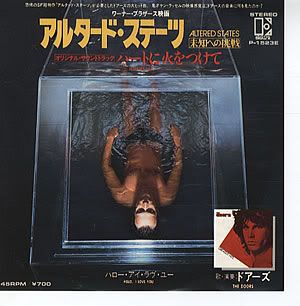 THE DOORS Light My Fire Rare 1981 Japanese 7" vinyl single also featuring Hello, I Love You, unique picture insert featuring a scene from the film 'Altered States' with lyrics on reverse P-1523E. 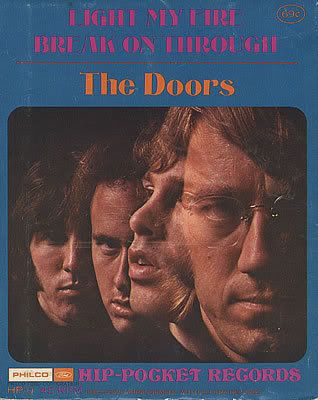 THE DOORS Light My Fire (Original 1968 2-track US 4" vinyl flexi-disc issued by Philco-Ford as part of their short-lived 'Hip-Pocket' series, also including Break On Through. These discs were designed to be taken with you and were sold over the counter and from vending machines. Philco also produced a special portable manual record player for the discs in the same scale. Housed in a 6" x 5" full colour envelope-style picture sleeve |
|
|
|
Post by jym on Jun 1, 2006 22:48:10 GMT
Yeah, LMF is in the movie but only a part of the instrumental if you aren't paying attention you'll miss it's used way out of context of the rest of the song. I saw the movie for years before I learned LMF was in it. It's the scene where William Hurt first sees Blair Brown at a house party.  |
|
|
|
Post by TheWallsScreamedPoetry on Jun 3, 2006 10:08:27 GMT
June 3rd 1967....... 'Light My Fire' breaks into the Billboard Top 100 at #98. |
|
|
|
Post by TheWallsScreamedPoetry on Jul 28, 2006 23:24:53 GMT
July 29th 1967 Light My Fire hits #1 in the Billboard chart......and the rest was History..........
|
|
|
|
Post by cobriaclord on Jul 30, 2006 18:38:08 GMT
The song is decent, the instrumental sections are amazing. Although this song is far from my favorite Doors song, I realize that I probably wouldn';t have discovered the Doors without this fantastic song.
Peace
|
|







